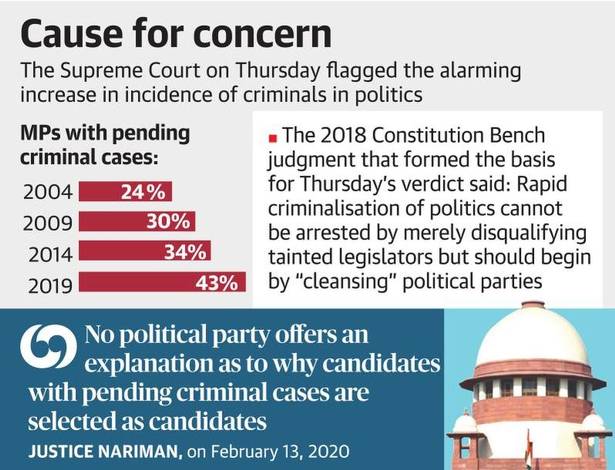Relevance: Mains: G.S paper II: Polity: Governance
Why in news?
- The Supreme Court on ordered political parties to publish the entire criminal history of their candidates for Assembly and Lok Sabha elections along with the reasons that goaded them to field suspected criminals over decent people.
About:
- The information should be published in a local as well as a national newspaper as well as the parties’ social media handles.
- It should mandatorily be published either within 48 hours of the selection of candidates or less than two weeks before the first date for filing of nominations, whichever is earlier.
- A Bench led by Justices Rohinton F. Nariman, in the judgment, ordered political parties to submit compliance reports with the Election Commission of India within 72 hours or risk contempt of court action.
Information should be detailed
- The published information on the criminal antecedents of a candidate should be detailed and include the nature of their offences, charges framed against him, the court concerned, case number, etc.
- A political party should explain to the public through their published material how the “qualifications or achievements or merit” of a candidate, charged with a crime, impressed it enough to cast aside the smear of his criminal background.
- A party would have to give reasons to the voter that it was not the candidate’s “mere winnability at the polls” which guided its decision to give him ticket to contest elections.
- It appears that over the last four general elections, there has been an alarming increase in the incidence of criminals in politics.
- In 2004, 24% of the Members of Parliament had criminal cases pending against them; in 2009, that went up to 30%; in 2014 to 34%; and in 2019 as many as 43% of MPs had criminal cases pending against them.



